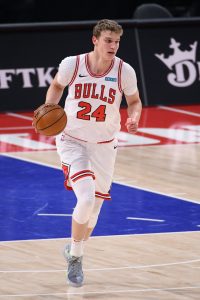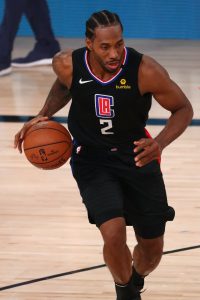Although NBA rosters are limited to 15 players during the regular season, teams are allowed to carry up to 20 players during the offseason. Expanded offseason rosters allow clubs to bring in players on contracts that aren’t fully guaranteed, giving those players a chance to earn a regular season roster spot or getting a closer look at them before sending them to their G League affiliate.
In addition to the usual 15-man rosters, NBA teams are permitted to carry two players on two-way contracts. Two-way deals, which we describe in detail in our glossary, essentially give clubs the NBA rights to two extra players, though they often spend much of the season in the G League rather than with the NBA team. While two-way players don’t count toward the 15-man regular season roster limit, they do count toward the 20-man offseason limit.
Over the course of the 2021 offseason and 2021/22 season, we’ll keep tabs on how many players are on each NBA team’s roster, breaking them down into a few groups. Here are the various categories you’ll find in our list:
- Official: These players are officially under contract with a given team, on guaranteed deals.
- Reported: These are players whose contract agreements have been reported but haven’t been made official. We’re expecting them to be finalized at some point, though it’s possible that some will fall through or were reported erroneously.
- 10-day: These are players officially signed to 10-day contracts, along with the expiry date on those deals.
- Two-way: These are players signed to two-way contracts. Unless otherwise noted, these deals are official. You can find a specific team’s two-way players right here.
- Total: A team’s total roster count, taking into account all of the above.
Here are the NBA’s roster counts for 2021/22, which we’ll continue to update through the rest of the regular season:
Updated 4-10-22 (11:00pm CT)
Atlanta Hawks
- Official: 15
- Two-way: 2
- Total: 17
Boston Celtics
- Official: 15
- Two-way: 2
- Total: 17
Brooklyn Nets
- Official: 15
- Two-way: 1
- Total: 16
Charlotte Hornets
- Official: 15
- Two-way: 2
- Total: 17
Chicago Bulls
- Official: 15
- Two-way: 2
- Total: 17
Cleveland Cavaliers
- Official: 15
- Two-way: 2
- Total: 17
Dallas Mavericks
- Official: 15
- Two-way: 2
- Total: 17
Denver Nuggets
- Official: 15
- Two-way: 2
- Total: 17
Detroit Pistons
- Official: 15
- Two-way: 2
- Total: 17
Golden State Warriors
- Official: 15
- Two-way: 2
- Total: 17
Houston Rockets
- Official: 15
- Two-way: 2
- Total: 17
Indiana Pacers
- Official: 15
- Two-way: 2
- Total: 17
Los Angeles Clippers
- Official: 15
- Two-way: 2
- Total: 17
Los Angeles Lakers
- Official: 15
- Two-way: 2
- Total: 17
Memphis Grizzlies
- Official: 15
- Two-way: 2
- Total: 17
Miami Heat
- Official: 15
- Two-way: 2
- Total: 17
Milwaukee Bucks
- Official: 15
- Two-way: 2
- Total: 17
Minnesota Timberwolves
- Official: 15
- Two-way: 2
- Total: 17
New Orleans Pelicans
- Official: 15
- Two-way: 2
- Total: 17
New York Knicks
- Official: 15
- Two-way: 2
- Total: 17
Oklahoma City Thunder
- Official: 15
- Two-way: 2
- Total: 17
Orlando Magic
- Official: 15
- Two-way: 2
- Total: 17
Philadelphia 76ers
- Official: 15
- Two-way: 2
- Total: 17
Phoenix Suns
- Official: 15
- Two-way: 1
- Total: 16
Portland Trail Blazers
- Official: 15
- Two-way: 2
- Total: 17
Sacramento Kings
- Official: 15
- Two-way: 1
- Total: 16
San Antonio Spurs
- Official: 15
- Two-way: 2
- Total: 17
Toronto Raptors
- Official: 15
- Two-way: 2
- Total: 17
Utah Jazz
- Official: 15
- Two-way: 1
- Total: 16
Washington Wizards
- Official: 15
- Two-way: 2
- Total: 17

